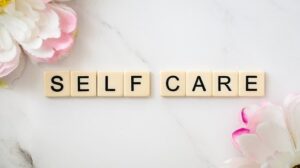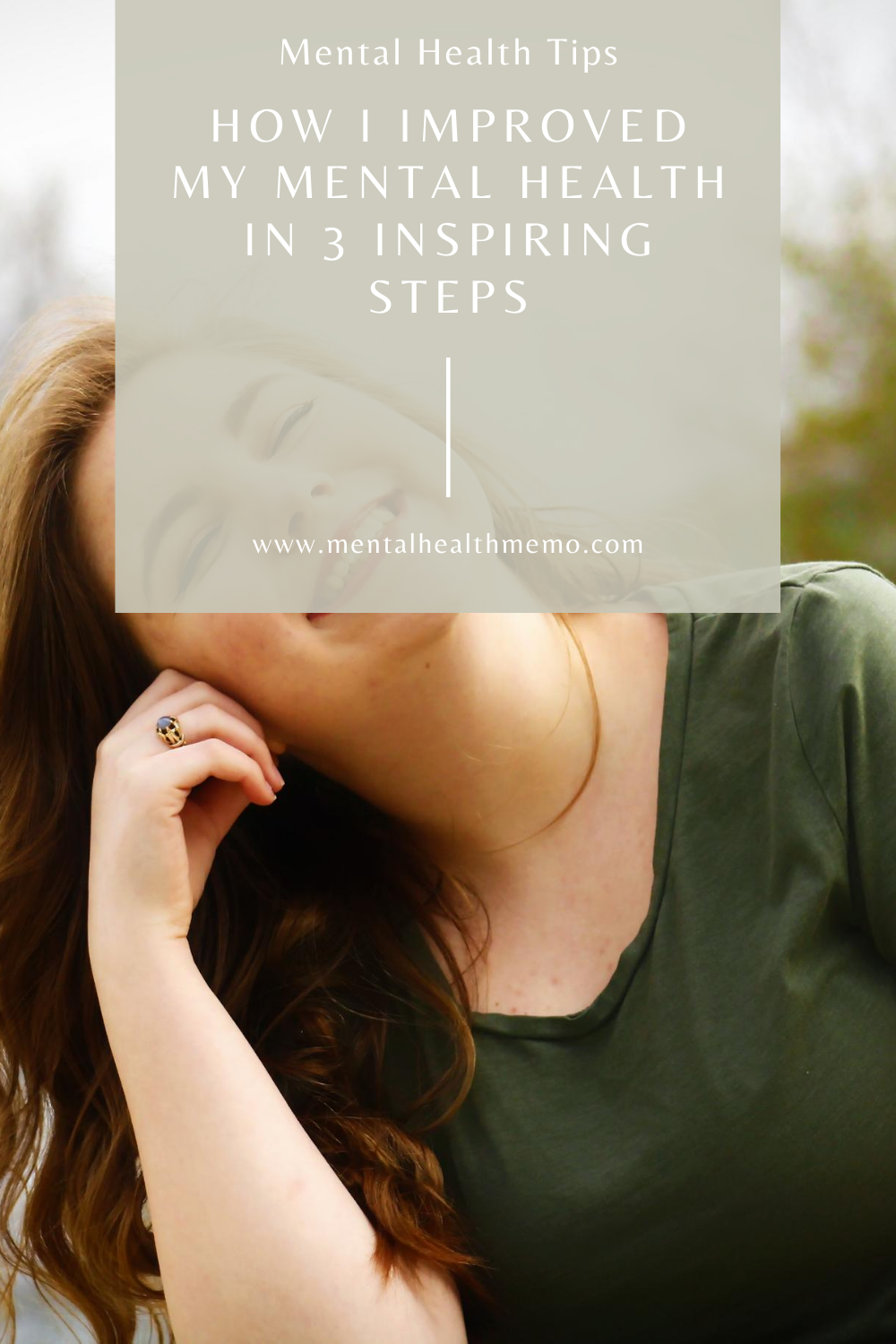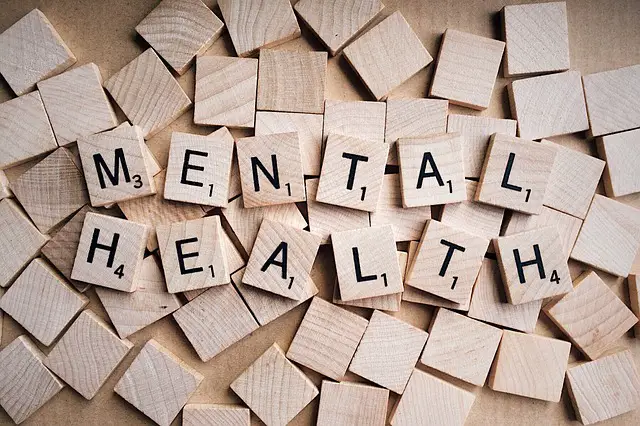Table of Contents
What is Mental Health?
Mental health can actually be a bit confusing to grasp. Are we talking about the brain’s health? If so, how is that different than just physical health since our brain is an organ? Or is mental health something totally unrelated to the actual physical brain?
The way I view mental health as a Social Work student is as such:
Mental health is composed of things like how we’re feeling, our stress levels, our thoughts, and our cognitive patterns. These things deeply affect our ability as people to partake in society in a meaningful and healthy way.
And while things such as thoughts and feelings may be more abstract, they are still greatly related to our physical health and our physical brain.
For example, if certain parts of our brain are overactive or underactive, they can impact our decision making, our emotions, and our abilities to self-regulate.
Furthermore, our bodies can also create sensations or impact mental health. An example of that is having a lot of stress in your life, which will inevitably create higher cortisol (your stress hormone), thus impacting how you’re feeling (which would likely be anxious or depressed).
Not only that, but we have specific parts of our brain dedicated to emotions, thoughts, and all these things we might consider to be slightly more abstract.
So what I’m trying to say is that:
- Mental health is as real as physical health
- It is strongly related to the condition of our brain, as well as the rest of our bodies
- Mental Health should be seen through various angles to properly address it

My Mental Health
As you may have realized through my post about my struggles with mental illnesses since I was a child, I have been working on my mental health for a LONG time.
I have had my mental health reach top peaks and deep pits, so I am well acquainted with the struggle of having to improve it over and over and over and over and over again. No exaggerate implied.
Sometimes I really wish we focused on bettering our mental health as much as we did our physical. Of course one is not more important than the other, but both need to be addressed.
It took years and years and years of hard work for me to finally be able to understand and be relatively at peace with my mental health. And it’s still not perfect by any means.
But I think I have finally reached a place where I am in tune with myself and my mental illnesses.
I want you to get there too, so I’d like to share my experience in hopes of guiding you on your own journey. Let’s get started!
1. I Changed My Perspective on Mental Health Recovery
I used to think one day I’ll be panic attack free, I’d be happy all the time and never have cynical thoughts again. But I learned the hard way that the journey to better mental health is not linear.
I still have daily setbacks, breakdowns, panic attacks, and days I have no will to do anything.
My biggest advice to you is to consider this the new normal. Do not define recovery as a final destination point where you’re cured. It rarely happens that way (not impossible depending on the situation, but unlikely).
The sooner you get rid of this expectation, the easier it will be.
Understanding this is going to make you so much kinder to yourself. Something you’re really going to struggle with, but need. At least I did.
Because if you have this goal of post-mental illness where the sun is bright and you’re at peace all the time… well you’re going to be let down a lot. And you’re going to feel like a failure. You really don’t need those feelings on top of what you’re going through.
So when I say change your perspective, I don’t mean be happy and rainbow unicorns all the time. Do the opposite.
Come to terms with the idea of imperfect.
Of sleepless nights, meltdowns, off-beat moods, tears, anger, frustration, pain. These are the reality.
This sounds hella depressing to think about I know. But something people often miss when trying to get better is that they don’t come to terms with this. They want that final, perfect, happy destination. But it doesn’t necessarily exist!
So when they aren’t able to reach it, they get more upset and depressed trying to force something that’s not there. Thus, inducing a crippling cycle of self-presumed failure, weakness, and helplessness.
Instead, accept that hard moments will still arise. Let them play out, and do your best to cope. Then, appreciate all the great times you’ll have where you feel in control and peaceful.
You can’t enjoy summer without having experienced winter.
2. I Put a Lot of Work into Self-Care (Mental & Physical Health)
I think it’s important to note that not everyone has the same definition of self-care as is often advertised by mass media.
Some people can’t afford to pay the hydro bill so they can’t take a luxurious bubble bath. Not everyone can take time out of their lives to have a weekend away. Maybe they have social anxiety and can’t go for a massage.
I’m not saying this to guilt-trip or make anyone feel bad. I’m doing it so that you don’t have to feel obligated to follow what you’re told self-care is. Especially if you don’t enjoy it, or do not have access to it.
For me, self-care looks like:
- Allowing myself to feel sad and anxious instead of beating myself up for it
- Carving time out to do physical activity as it helps me manage my emotions
- Taking a break from work when needed so I do not overwork myself
- Eating as healthy as I can, but not depriving myself when I get cravings
- Painting
- Watching stupid Youtube videos that have no real substance or importance
- Walking away from people and situations that do not bring me peace (if I can!)
- Remembering to drink water once in a while
- Journaling
And the list goes on! Self-care does not have to be this huge treat (but it sure can be if you want). It really is just everyday practices to help make you feel better.
This is not an easy step at all.
I still struggle with it, and likely always will. This brings us right back to the first point again! It’s never going to be perfect but it’s important to at least try!
So I really try every single day to do at least something to take care of myself in any way possible. No matter how small and irrelevant. And I’ve found the more I do it, the better and more consistent I get. Then, in turn, I feel better and more confident about my mental health.
This all to say, learning how to practice self-care on YOUR terms is really important. It’ll be a journey in itself full of errors and triumphs but you’ll find a balance eventually. But this is incredibly valuable for bettering your mental health.

3. I Did my Homework
I know this sounds a bit weird, so let me explain.
Naturally in trying to get better, I read lots of information on how to do it, and what I should be doing. I also went through therapy, where I was given work to complete at home on my own. That included thought records, self-reflection, writing out my feelings, etc.
So… I did it. I sat down for long periods of time and thought hard, stayed consistent, and actively reflected. And that’s what made the biggest difference for my recovery.
Every piece of knowledge I gained about how to better cope, I incorporated. Every piece of homework I was given from my psychiatrist, I did.
I stayed open and dedicated throughout the whole process (I should say the ongoing process). It wasn’t just listening to what people advised me to do then moving on and doing nothing. I actually put it into practice.
I believe the word for this is… personal growth?
If you want to change, you have to put in the hard, painful work. You don’t get recovery handed to you on a silver platter (how I so wish that was the case). You gotta hustle for it.
And it’s not easy to put in that energy. I gave up, got lazy, and started over many times.
Like I’ve already said, you need to want it really bad. If you aren’t ready (which in itself is a process), it’s going to be really hard to give this journey the time and effort it requires.
Not to say you have to be energetic & completely ready before you can start anything. You just need to want it, and to try your best.
At the end of the day, all we can really do is try as much as we can. It never has to work out right away or be perfect. As long as you’re doing your best to keep pushing forward, it doesn’t matter how slow you go.
This was an important lesson for me to learn as a typical perfectionist with unrealistic expectations of myself. I still work tirelessly to let that go because that mindset makes things hard for me.

In All…
So that about sums it up. I put in a lot of dedication and work into changing how I experience my mental health. I put an emphasis on taking care of my body, mind, and soul as much as I can, and I’m realistic about what that’s going to look like.
Of course, this is just the big picture of it, and there are lots of smaller, specific things that I did to put these pieces into action and keep them up. But those can be for a different post if y’all want it. These were simply the bigger, broader things I change in general to help my recovery.
I hope you enjoyed it and found some inspiration. Let me know if there’s anything you did that helped you get in control of your mental health. I’d love to hear it!
All my love,
T

